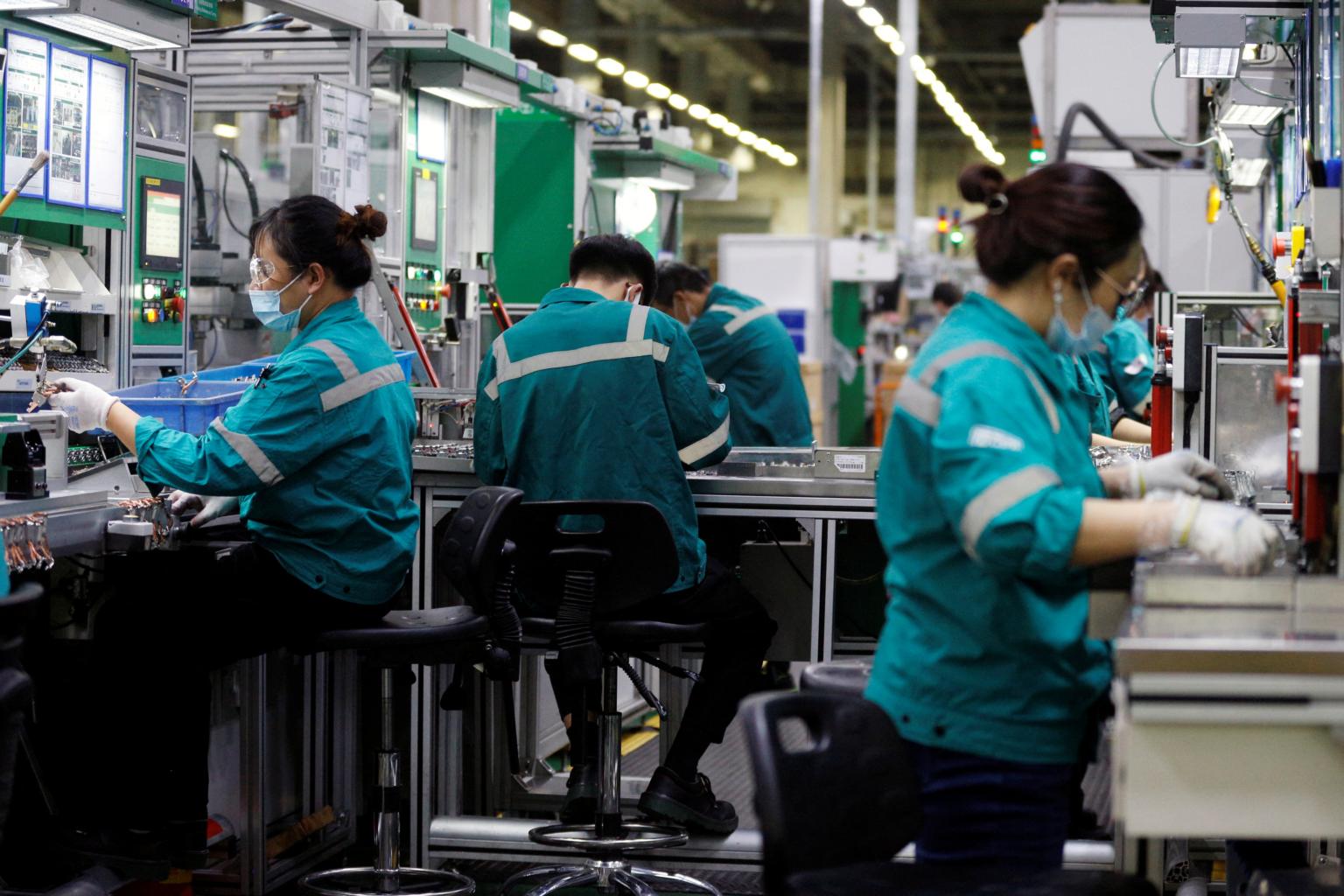China inflation rises more than expected on oil, Covid-19 disruptions
Sign up now: Get ST's newsletters delivered to your inbox

China's producer price index gained 8.3 per cent from a year earlier.
PHOTO: REUTERS
Follow topic:
BEIJING (BLOOMBERG) - China's factory gate prices rose more than expected in March as oil prices climbed, putting pressure on manufacturers that are already struggling to operate amid repeated Covid-19 outbreaks.
The producer price index (PPI) gained 8.3 per cent from a year earlier, official data showed on Monday (April 11), down from 8.8 per cent in February and above the median estimate of an 8.1 per cent increase in a Bloomberg survey of economists.
Consumer price growth accelerated to 1.5 per cent after staying unchanged at 0.9 per cent for two months. The reading beat economists projection of a 1.4 per cent increase.
The war in Ukraine has pushed up the cost of global commodities including oil, adding to economic pressures as China battles its worst Covid-19 outbreak in two years. Lockdowns to curb the spread of infections across several cities and provinces have also disrupted food supplies, driving up prices for consumers during the month.
International commodity prices "continued to soar due to geopolitical and other factors, driving up prices of relevant products such as oil and non-ferrous metals" on a month-on-month basis, National Bureau of Statistics (NBS) analyst Dong Lijuan said in a statement. The year-on-year decline in PPI was mainly due to a high base of comparison from last year, she added.
China's benchmark CSI 300 Index fell as much as 2.1 per cent after the inflation data, the biggest drop in almost a month.
Fresh vegetable prices jumped 17.2 per cent year on year, compared with a drop of 0.1 per cent in February, the NBS data showed. Of the sub-items in the consumer price basket, fuel for transport rose the fastest at 24.1 per cent year on year, according to a breakdown provided by the statistics office.
In the PPI, prices accelerated in sectors such as coal mining and washing, oil and gas extracting, and electricity and heating production and supply.
Manufacturers in pandemic-stricken areas were forced to shutter their doors, or else keep workers on factory floors in so-called closed-loop systems so they could stay operational. Businesses have said they faced difficulties buying raw materials, or faced extended delivery times due to supply chain disruptions. Restrictions also forced consumers to stay in their homes, as many struggled to secure daily necessities or paid high prices for goods.
Price pressures are unlikely to constrain policymakers from stepping up support for economic growth, though. Unlike in major developed economies, China's central bank is in easing mode, having cut interest rates in recent months to boost liquidity and dialled up fiscal spending.
The authorities in recent weeks have made repeated vows to stabilise the economy as the Covid-19 outbreak worsens, fanning speculation that a policy rate cut or other easing measures could happen soon.

